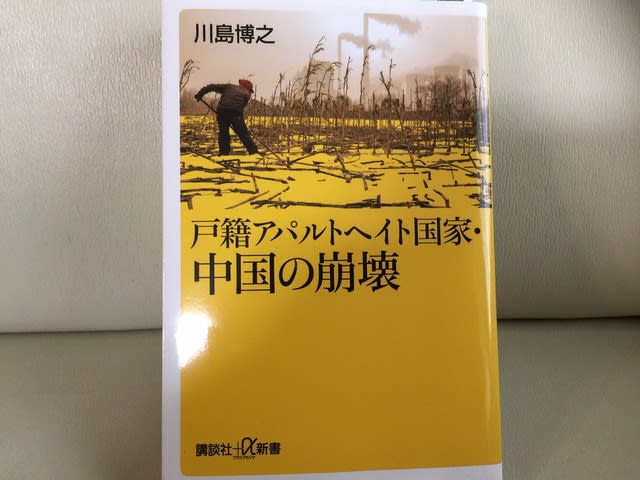Introduction-Considering the economy, the population of China is 400 million.
China has a population of 1.3 billion.
Many people think so, but it is a bit wrong.
When talking about the economy, China should have a population of 400 million, not 1.3 billion.
There are 900 million peasants in China.
And they are definitely poorer than the people who live in the city.
I expressed peasant here, but to be more precise, people with peasant family register.
I want to explain the family register in detail in the text. Still, in China, there is a clear distinction and discrimination between peasants and urban residents with urban family registers.
There is also severe economic disparity.
If you want to know about China, you'll read books written by Chinese ambassadors and journalists who have worked in China, but many of them live in Beijing and Shanghai and go to the provinces for interviews. Even if it happens, it only visits the core city.
They rarely visit rural areas.
I thought that Japanese people were Chinese
As a result, it was only 400 million that lives in a city that felt so far that the Japanese were the Chinese.
Then, peasants that reach even 900 million persons was the existence like a shadow and didn't ever touch our eyes.
Yes, the Japanese were only going to know China by looking at only about 400 million people living in the city.
As a result, the knowledge about us Japanese's China had become very distorted.
The reason why there is a significant disparity between peasants and urban residents needs to be considered from its history.
Knowing the history of discrimination is very important when considering the future of China.
When thinking about a vast China, it is perilous to foresee the future only with immediate indicators.
China's future can only be foreseen if the work of positioning China today in the history of China 3000 years.
I have studied food production around the world at the Ministry of Agriculture, Forestry and Fisheries, and the Faculty of Agriculture, the University of Tokyo.
It called on the farm village of a lot of countries and walked for that research.
Above all, partly because 'who does bring up China?', American Lester R. Brown, the founder of Worldwatch Institute, wrote in 1995, became a big topic of conversation in Japan; I had an interest in China especially and studied it.
I have also made many survey trips.
Rice farming area in the suburbs of Harbin, mountainous area in Yunnan, rural village 300km west of Nanning, Guangxi Zhuang Autonomous Region, and a house in the desert of Inner Mongolia, many more I visited and visited a rural area.
I have been studying at a university for the last 20 years, but the research expenses at the university are limited.
As a result, large-scale surveys cannot be conducted.
Instead, the university has a strong ally, an international student.
Instead of interpretation an international student as an interpreter, the survey was conducted in the form of visiting the home country of the international student.
It was a very effective technique.
It can get useful information in a short time.
All of the students from China I taught were urban family registers.
So, even if I visit, I will visit the city, but these international students have relatives.
And the unity of Chinese relatives is firm.
It is especially true when students complete their studies and return home, but when we arrive in China, a big dinner party is held.
There are a lot of relatives of international students there.
I'm glad to be welcomed, but it can be said that relatives gathered and held a party based on my visit.
Only international students can communicate in Japanese. Almost all relatives cannot speak Japanese or English, so after the first greeting, relatives forget all about me and enter into a banquet.
However, this banquet is very helpful.
If I tell an international student in advance that I want to visit a rural area, it is because it invites inevitably to a banquet the uncle and aunt who live in a district certainly and introduces them to me.
This draft continues.











